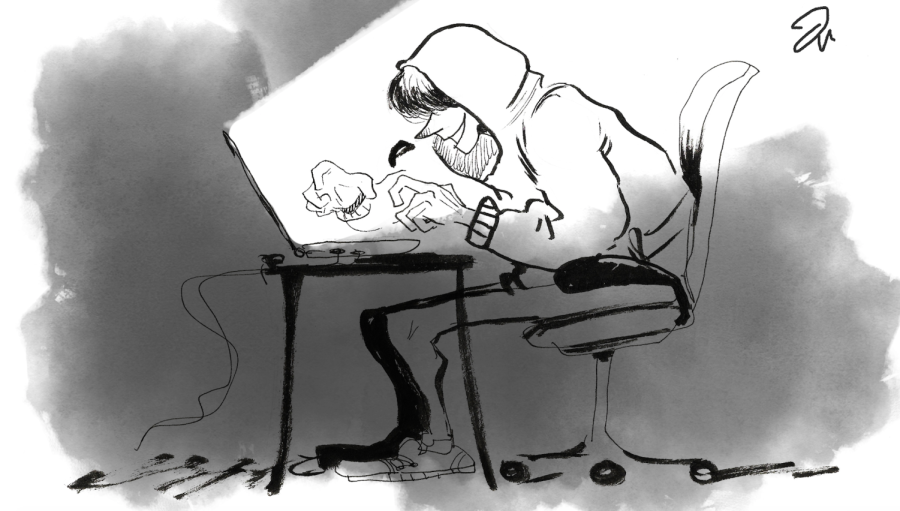Hackers use email scams, social media to steal personal information
October 9, 2018
Would you know if a hacker stole your personal information?
While most people would like to believe so, it’s usually not the case, said Kambiz Ghazinour, an assistant professor in the Department of Computer Science.
“Mostly, we think that if our personal information is stolen, it’s going to be used as identity theft immediately against us,” Ghazinour said. “Unfortunately, most of the people’s information is stolen from have no clue.”
Identity theft has been on the rise in recent years. According to a study released by Javelin Strategy & Research, a record-setting 16.7 million U.S. consumers fell victim to identity theft in 2017.
One of the most common ways hackers steal personal information is through emails known as phishing scams, Tiffany Schoenike, the director of campaigns and initiatives for the National Cyber Security Alliance, said.
Hackers send out emails containing malware, a software that causes damage to a computer or device, which they disguise as clickable links. These links enable hackers to access or even take control of someone else’s device, Schoenike said.
She also said hackers also use social media to commit identity theft because of the massive amount of personal information posted on them.
“People provide personal information on social media that’s public,” Schoenike said. “They don’t think, ‘more than just my friends can see this.’”
By viewing a person’s social media profile, a hacker can learn information about that person, such as activities he or she enjoys and places they like to go. This makes it easier for a hacker to steal personal information.
To protect themselves from having their personal information stolen, people should avoid clicking on links and email attachments that come from unfamiliar sources, Schoenike said.
“Personal information is like money,” she said. “Value it. Protect it.”
In addition, Ghazinour said people should be cautious with the information they post on social media.
People have a tendency to post information online that they should not want strangers to know, he said. Before posting something, people should stop and consider whether or not the information could be used by hackers.
Ghazinour said social media users who fear their accounts have been hacked should immediately create new, secure passwords.
“If you’ve noticed that there’s something wrong about your account or there’s some sort of activity, obviously the first step is to change your password,” she said. “And don’t change just one password. Change all of them.”
He said strong passwords contain a combination of letters, numbers and symbols.
Although personal information breaches happen without warning, people can try to protect themselves by remaining aware of the threat, Schoenike said.
“A lot of times, people don’t really know that it has happened,” she said. “It’s important to stay vigilant.”
Paige Bennett is a Science Reporter. Contact her at [email protected].

























